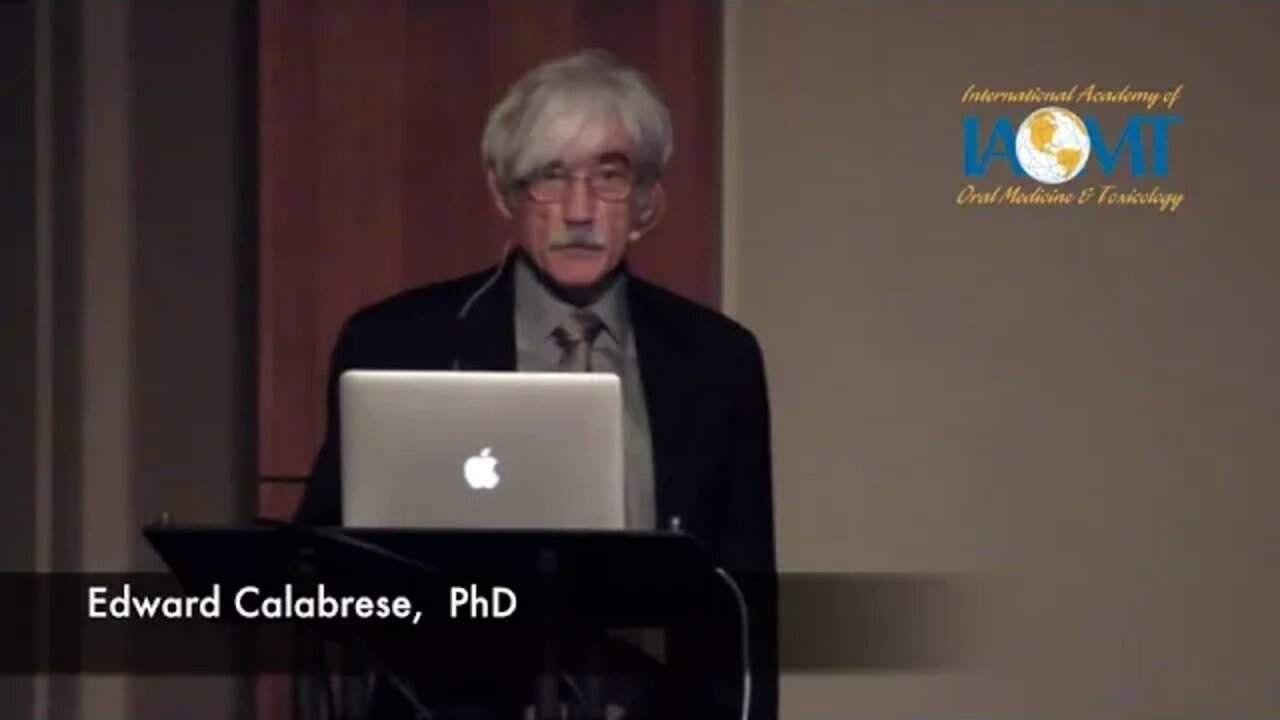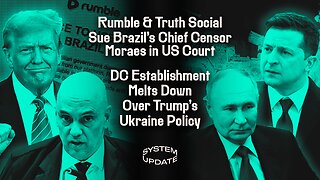Premium Only Content

Edward Calabrese, PhD
Edward Calabrese, PhD: The Linear Dose Response for Cancer Risk Assessment: New Findings Challenge its Scientific Foundations and Use by Regulatory and Public Health Agencies
Presented at IAOMT's 2018 Spring Conference in Denver, CO.
Dr. Calabrese has researched extensively in the area of host factors affecting susceptibility to pollutants, and is the author of over 750 papers in scholarly journals, as well as more than 10 books, including Principles of Animal Extrapolation; Nutrition and Environmental Health, Vols. I and II; Ecogenetics; Multiple Chemical Interaction; Air Toxics and Risk Assessment; and Biological Effects of Low Level Exposures to Chemical and Radiation. Along with Mark Mattson (NIH) he is a co-editor of the recently published book entitled Hormesis: A Revolution in Biology, Toxicology and Medicine. He has been a member of the U.S. National Academy of Sciences and NATO Countries Safe Drinking Water committees, and on the Board of Scientific Counselors for the Agency for Toxic Substances and Disease Registry (ATSDR). Dr. Calabrese also serves as Chairman of the Biological Effects of Low Level Exposures (BELLE) and as Director of the Northeast Regional Environmental Public Health Center at the University of Massachusetts. Dr. Calabrese was awarded the 2009 Marie Curie Prize for his body of work on hormesis. He was the recipient of the International Society for Cell Communication and Signaling-Springer award for 2010. Dr. Calabrese received an honorary Doctor of Science from McMaster University, Hamilton, Ontario, in 2013.
Over the past 20 years Professor Calabrese has redirected his research to understanding the nature of the dose response in the low dose zone and underlying adaptive explanatory mechanisms. Of particular note is that this research has led to important discoveries which indicate that the most fundamental dose response in toxicology and pharmacology is the hormetic-biphasic dose response relationship. These observations are leading to a major transformation in improving drug discovery, development, and in the efficiency of the clinical trial, as well as the scientific foundations for risk assessment and environmental regulation for radiation and chemicals.
Disclaimer: The information provided on this video is not intended as medical advice and should not be interpreted as such. If you seek medical advice, please consult with a health care professional. Also, the information in this video represents the thoughts of the individual speaker/s, and the views expressed in this interview do not necessarily reflect the views of the IAOMT, its individual members, its Executive Committee, its Scientific Advisory Council, its administration, its employees, contractors, sponsors, or any other IAOMT affiliates.
-
 1:27:42
1:27:42
International Academy of Oral Medicine & Toxicology
1 year agoFundamentals of Biological Dentistry Course (session 2) | Joe Palmer, DMD
252 -
 7:01
7:01
JasonDunn
2 years agoBiking Charlottetown Prince Edward Island
10 -
 3:03:35
3:03:35
TimcastIRL
11 hours agoTrump Just FIRED OVER 6,700 IRS Agents In PURGE, Democrats SOMEHOW Angry w/Chloe Cole | Timcast IRL
193K276 -
 1:39:48
1:39:48
Kim Iversen
14 hours agoThe Measles Fear Hoax: How They’re Using an Outbreak to Smear RFK Jr.
110K94 -
 1:18:19
1:18:19
Glenn Greenwald
13 hours agoRumble & Truth Social Sue Brazil’s Chief Censor Moraes in US Court; DC Establishment Melts Down Over Trump's Ukraine Policy | SYSTEM UPDATE #409
133K143 -
 1:33:39
1:33:39
Redacted News
15 hours agoBREAKING! Europe goes NUCLEAR against Trump over pushing for PEACE in Ukraine | Redacted
201K278 -
 1:00:43
1:00:43
The StoneZONE with Roger Stone
11 hours agoRoger Stone Destroys Mike Pence for Attacks on Trump | The StoneZONE
135K56 -
 1:05:43
1:05:43
Flyover Conservatives
1 day agoFederal Reserve on the Chopping Block—Trump’s Boldest Move Yet! - Floyd Brown, Western Journal | FOC Show
75.4K8 -
 2:50:40
2:50:40
Melonie Mac
16 hours agoGo Boom Live Ep 38!
74.7K4 -
 11:08
11:08
China Uncensored
15 hours agoXi Jinping's Greatest Fear
42.7K15